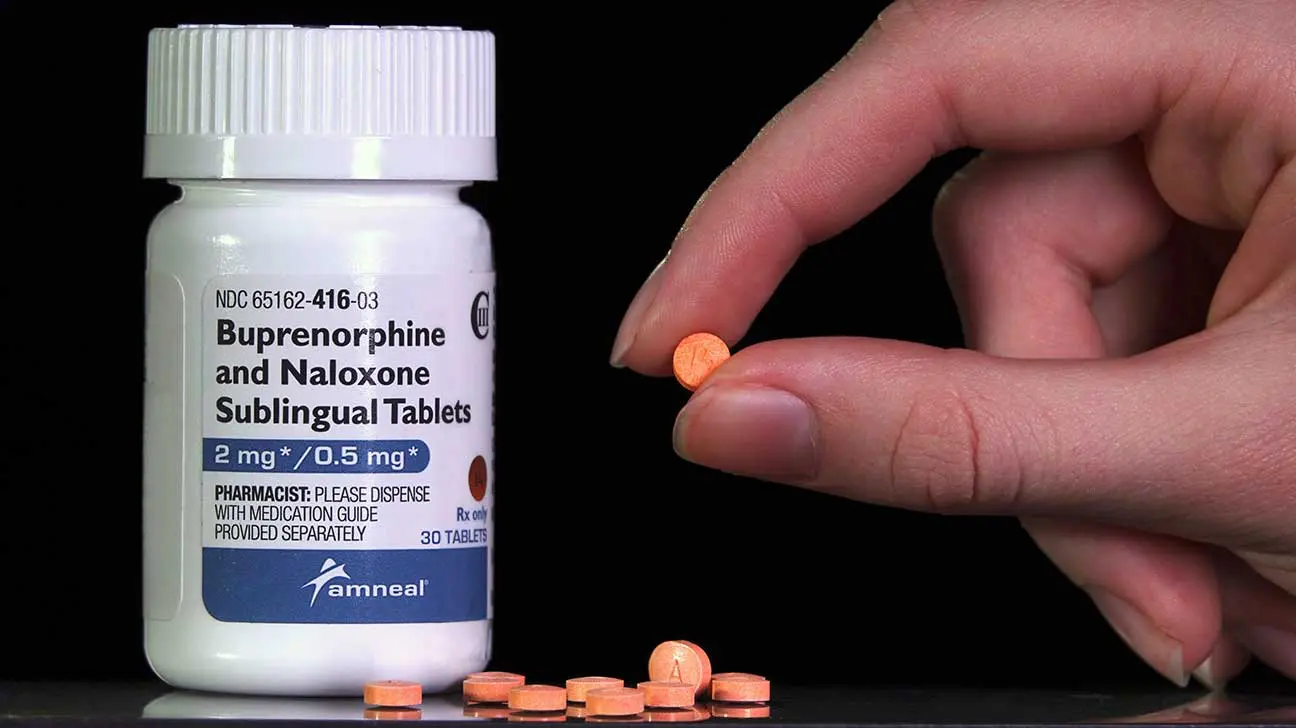
Suboxone is a form of medication-assisted treatment (MAT) that has proven to be an effective approach to treating opioid use disorder (OUD) when used in conjunction with therapy.
Due to its effectiveness, Suboxone treatment is often covered by health insurance, including Medicaid.
Does Medicaid Cover The Cost Of Suboxone Treatment?
It depends on the state, but most Medicaid programs offer some form of coverage for Suboxone treatment. Some cover it completely while others may require a small copay.
According to a survey conducted by KFF, formerly The Kaiser Family Foundation, two states do not cover Suboxone as a treatment for opioid use disorder: New Mexico and Iowa.
An additional six states did not respond to the survey:
- Arkansas
- Delaware
- Georgia
- Minnesota
- New Hampshire
- Utah
What Is Suboxone?
Suboxone treatment is a form of MAT that includes the medications buprenorphine and naloxone and is used to treat addiction to prescription opioids.
Buprenorphine is a partial opioid agonist, which means it both attaches to the mu-opioid receptors and blocks them. Naloxone is an opioid antagonist, which means it blocks the mu-opioid receptors (preventing more opioid molecules from attaching), making it very effective at reversing an overdose.
Suboxone combines these two medications to provide an effective treatment for OUD helping manage withdrawal and reduce drug cravings. Treatment providers can also use it to help clients with heroin or morphine addiction.
Why Do Some States Cover Suboxone But Not Others?
Because Medicaid is funded by both federal and state governments, the programs differ from state to state.
The differences between how states handle coverage and even how they administer Medicaid can become complicated quickly. The important point is that most states cover Suboxone and MAT in general.
What Is Medicaid?
Medicaid health insurance is a state and federally funded program for people who have little or no income.
States have slightly different variations on rules that determine who receives Medicaid and who does not.
In general, to receive Medicaid you must:
- have low or no income
- be pregnant
- be over the age of 65
- be a citizen
- have a certain status in regard to adoption or foster care
Medicaid can be an important source of insurance for people facing opioid addiction. Those who have no income can receive help. Some treatment centers will even help you sign up for Medicaid.
Does Medicaid Cover Other Forms Of MAT?
Suboxone is one of the most broadly covered medications for MAT, with only two states declining to cover it.
The only MAT medication that has more coverage throughout the states is naltrexone, which is covered by all but the District of Columbia. (Similar to the survey above, six states did not report.)
Methadone is also an option for MAT, but it is much older and has a degree of abuse potential because it is a full agonist. That means it works in the same way other opioids do, but it doesn’t have the same level of a high.
Like Suboxone, methadone treatment coverage by Medicaid is available in all but two states.
Find Addiction Treatment Today
If you are looking for addiction treatment for yourself or a loved one, you can find it today. Call us to learn more about your treatment options and how to access them.
Addiction Resource aims to provide only the most current, accurate information in regards to addiction and addiction treatment, which means we only reference the most credible sources available.
These include peer-reviewed journals, government entities and academic institutions, and leaders in addiction healthcare and advocacy. Learn more about how we safeguard our content by viewing our editorial policy.
- Kaiser Friends Foundation - Medicaid Behavioral Health Services: Methadone for Medication Assisted Treatment (MAT)
https://www.kff.org/other/state-indicator/medicaid-behavioral-health-services-methadone-for-medication-assisted-treatment-mat/?currentTimeframe=0&sortModel=%7B%22colId%22:%22Location%22,%22sort%22:%22asc%22%7D - Kaiser Friends Foundation - Medicaid Behavioral Health Services: Oral Naltrexone for Medication Assisted Treatment (MAT)
https://www.kff.org/other/state-indicator/medicaid-behavioral-health-services-oral-naltrexone-for-medication-assisted-treatment-mat/?currentTimeframe=0&sortModel=%7B%22colId%22:%22Location%22,%22sort%22:%22asc%22%7D - Kaiser Friends Foundation - Medicaid Behavioral Health Services: Suboxone Treatment
https://www.kff.org/other/state-indicator/medicaid-behavioral-health-services-suboxone-treatment/?currentTimeframe=0&sortModel=%7B%22colId%22:%22Location%22,%22sort%22:%22asc%22%7D - Medicaid.gov - Medicaid Eligibility
https://www.medicaid.gov/medicaid/eligibility/index.html - Substance Abuse and Mental Health Services Administration - Buprenorphine
https://www.samhsa.gov/medications-substance-use-disorders/medications-counseling-related-conditions/buprenorphine - Substance Abuse and Mental Health Services Administration - Naloxone
https://www.samhsa.gov/medications-substance-use-disorders/medications-counseling-related-conditions/naloxone


